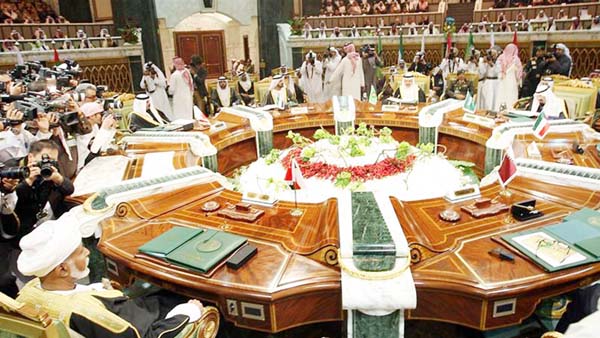
Al Jazeera News :
All member countries of the Gulf Cooperation Council (GCC), which includes Qatar, are expected to attend its next summit in the Saudi capital, Riyadh, according to Kuwait’s Deputy Foreign Minister Khaled Al-Jarallah.
“I am optimistic that the level of representation is expected to be high and reflects the keenness of GCC leaders to maintain this pioneering experience,” the minister said in press statements carried by Kuwaiti news agency KUNA. Jarallah said the summit, scheduled to be held in December, offers a ray of hope in reviving efforts to resolve more than one-year-old Gulf dispute.
Kuwait has been mediating between Qatar and Saudi-led bloc, which imposed a land, sea and air blockade on the country last year.
In June 2017, Saudi Arabia, the United Arab Emirates (UAE), Bahrain, along with non-GCC member Egypt, cut off all diplomatic relations with Qatar.
The four nations accused Qatar of supporting “terrorism” and “extremism” – allegations that Doha has repeatedly denied, calling the boycott a challenge to its sovereignty.
The GCC is a political and economic alliance of six countries in the Arabian Peninsula: Bahrain, Kuwait, Oman, Qatar, Saudi Arabia, and the UAE.
Earlier this month, Qatar’s Emir Sheikh Tamim bin Hamad Al Thani said he regretted the continuation of conflict with other Arab states, but added that the “crises will pass”.
The United States, a GCC ally, has tried to mediate in the Gulf dispute, which it sees as a risk in its efforts to contain regional power Iran. Qatar is home to the largest US airbase in the Middle East.
But Saudi Arabia and the UAE have repeatedly said that resolving the dispute was not a top priority for them.
The diplomatic crisis over Saudi journalist Jamal Khashoggi’s assassination, however, has put Riyadh in the dock.
Under pressure over Khashoggi killing, Saudi Crown Prince Mohammed bin Salman (MBS) last month praised Qatar’s economy in a rare conciliatory remark.
The US push to counter Iranian threat has remained a top priority for the blockading nations led by Saudi Arabia, but Qatar has maintained diplomatic relations with Iran.
Earlier this year, Qatar’s Defence Minister Khalid bin Mohammad al-Attiyah said that Doha maintains “friendly relations with everyone”.
“We are responsible for the supply of [an enormous amount] of the world’s energy. We have to have a smooth flow of energy, and that means we have to eliminate having enemies,” he said, referring to the country’s oilfield shared with Iran.
In October, Bahrain’s Foreign Minister Khalid bin Ahmed Al Khalifa said a planned Gulf security alliance, expected to include Egypt, will be formed by next year.
Khalifa said the proposed Middle East Strategic Alliance (MESA) – an initiative pushed by US President Donald Trump to confront Iran – will help the Gulf remain “a pillar of stability”. MESA has been called an “Arab NATO” by White House officials.

